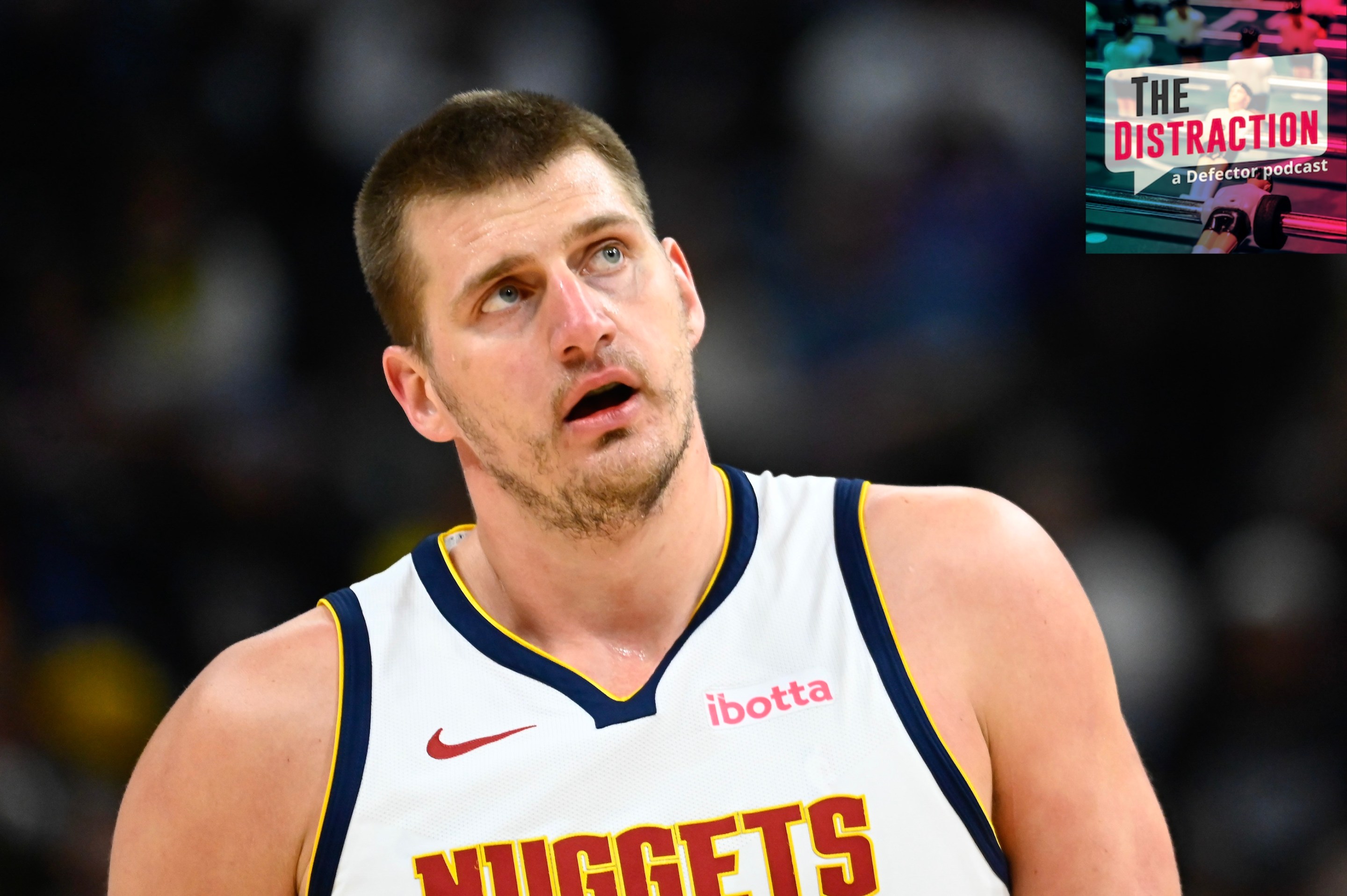For better and worse, it has never been easier to listen to people talk about NBA basketball. Some of this is because the NBA is currently in a good place, buoyed by its many charismatic stars and compelling teams; a lot of it is just a reflection of the fact it has never been easier to hear people talking about anything. But if you are going to participate in NBA Discourse—and the NBA Playoffs, or at least their qualified and Batum-haunted play-in phase, are happening now, so the timing is right—it helps to bring a guide. There are a lot of ways to get lost, and it is very loud out there, and you do not want to find yourself trapped in a blind alley, listening to hour three of the podcast that DeShawn Stevenson and Andray Blatche presumably do about cryptocurrency investing and how the league needs to bring back "DeShawn Stevenson and Andray Blatche types."
Luckily for us, we work with Patrick Redford, who is an expert on both NBA Discourse and NBA basketball, and a delightful conversationalist besides. And while we regrettably did not address either NFTs or the question of whether the NBA needs more DeShawn Stevenson or Andray Blatche types, we did move through the playoff picture and the most interesting playoff teams at a brisk pace. Drew, after a story highlighted by an appearance of his iconic Sullen Teen Girl voice, mostly set us up by asking a series of increasingly incredulous questions about the playoff field and then responding with confusion as we repeatedly answered them in the affirmative.
So: Are the Knicks really the second-best team in the Eastern Conference? Yes, and they're also shockingly normal in how they have gone about becoming good considering that they are 1) the Knicks and 2) coached by Tom Thibodeau. Are the Orlando Magic actually good? They actually are, if much better on defense than on offense. Does the high-speed rebooting of the Oklahoma City Thunder into a potential juggernaut validate the broader theories of executive tank warfare that dominated the NBA discourse during the last decade? Not really, because what Sam Presti managed to do there was much more interesting and much less open-ended than the older version.
There wasn't much affirmative to say about whatever is wrong with the Milwaukee Bucks—there hasn't been a lot of affirmative stuff there, period, during a season of curdled possibility and end-stage Doc Rivers Energy—but it did lead into a discussion of what good NBA coaches actually do, and an appreciation of cool coaches past and present. Patrick ran down his vendetta against the Phoenix Suns, and specifically the dreary Kobe cosplay that is embodied by but not limited to Devin Booker. I did my best to be optimistic about the Clippers in a way that would not jinx or otherwise compromise them. Drew said that culture-warrior Orlando forward Jonathan Isaac's name reminded him of Jonathan Chait; Patrick called Cavaliers big man Evan Mobley "Derrick Favors with wifi." I was very nice and respectful to everyone and made no similarly reckless statements; I can say this because Luka Doncic being "ruddier than ever before" is a matter of fact and not opinion.
And we hadn't even gotten to the Sacramento stuff yet. There is no way to have Patrick on the podcast without discussing California's capital, the famous Most Interesting City In America, and we did this both by letting Patrick add some hard-earned disgust at his beloved Kings into a conversation about how good the Western Conference is—the words "ooh I hate them so much" were spoken, here, and not by Drew or me—and by discussing the Sacramento A's Experience, which will bring Oakland's misbegotten and mismanaged team to Sacramento for at least the next few seasons, and quite possibly forever. Then, like the protagonist of Greta Gerwig's Lady Bird (2017), we determinedly but not a little sadly left Sacramento behind to address bigger concerns—in this case, the question of whether we might be entering an era in which sufficiently cynical and incompetent owners can actually screw up the strong-arm stadium deals that were previously their stock in trade. This flowed into a broader conversation about the capitalist slapstick of watching these owners try to Do Deals, the weird municipal rationalizations and emotional stakes of taking a team from another city, and what happens when a city actually succeeds in that work, which usually involves spending $400 million to buy some rich asshole a Jumbotron.
There was an exciting pivot relating to our one Funbag question, which was going to be about the heterodox North Jersey Sloppy Joe, but instead wound up being about whether the glut of information afforded by the glut of new technology has made it impossible for people to share mass experiences in the ways that we used to. Are there more things happening now, or do we just know more, faster? This was a very interesting question, I thought, and I felt a strange and unearned glow of pride at the fact that the back-up for the question about regional sandwichways was something with such far-reaching implications. And so we talked about the palate-wrecking effect of Trump-era lawlessness, January 6 as both a reflection of and product of the bizarre refracting effects of contemporary technology, and the vanishing old ways of the American kook lifestyle. You can see how we had no time left to discuss the Stevenson/Blatche stuff, but we'll have another chance next week.
If you would like to subscribe to The Distraction, you can do that through Apple Podcasts, Spotify, or wherever else you might get your podcasts. Thank you as always for your support.






